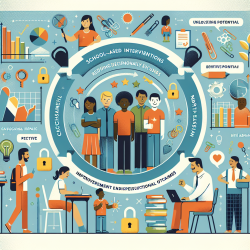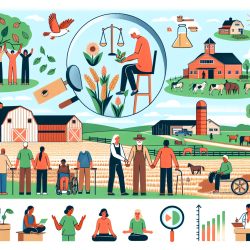Introduction
The COVID-19 pandemic has brought unprecedented challenges to families worldwide, with social isolation and economic stress exacerbating the risk of child maltreatment. A recent study titled Parental Social Isolation and Child Maltreatment Risk during the COVID-19 Pandemic highlights the critical need for mental health supports to mitigate these risks. This blog will explore the study's findings and offer practical steps for practitioners to enhance their skills and support families effectively.
Key Findings from the Study
The study, conducted in the early weeks of the pandemic, surveyed 283 parents of children aged 0-12 in the U.S. It found that:
- Nearly 20% of parents reported hitting or spanking their child in the past two weeks.
- Parents' perceived social isolation and recent employment loss were significantly associated with increased risk of physical and emotional neglect, verbal aggression, and physical punishment.
- Social isolation was linked to changes in discipline, with parents using discipline and spanking more frequently.
These findings underscore the need for mental health support to address the strain caused by the pandemic.
Implications for Practitioners
As practitioners, it is crucial to leverage these findings to improve our approaches and support systems for families. Here are some strategies to consider:
- Enhance Mental Health Support: Implement regular mental health screenings for parents to identify those at risk and provide timely interventions.
- Promote Social Connectivity: Facilitate online support groups for parents to reduce feelings of isolation and provide a platform for sharing experiences and strategies.
- Educate on Positive Discipline: Offer workshops and resources on non-violent discipline techniques to reduce reliance on physical punishment.
- Collaborate with Schools: Work with educational institutions to identify at-risk families and provide integrated support services.
Encouraging Further Research
The study highlights the need for ongoing research to understand the long-term effects of the pandemic on child welfare. Practitioners are encouraged to engage in research initiatives that explore innovative solutions and interventions. By contributing to the body of knowledge, we can better equip ourselves to support families in crisis.
Conclusion
The COVID-19 pandemic has amplified the challenges faced by families, particularly in terms of child maltreatment risks. By implementing data-driven strategies and supporting further research, practitioners can play a pivotal role in creating positive outcomes for children. To read the original research paper, please follow this link: Parental Social Isolation and Child Maltreatment Risk during the COVID-19 Pandemic.










